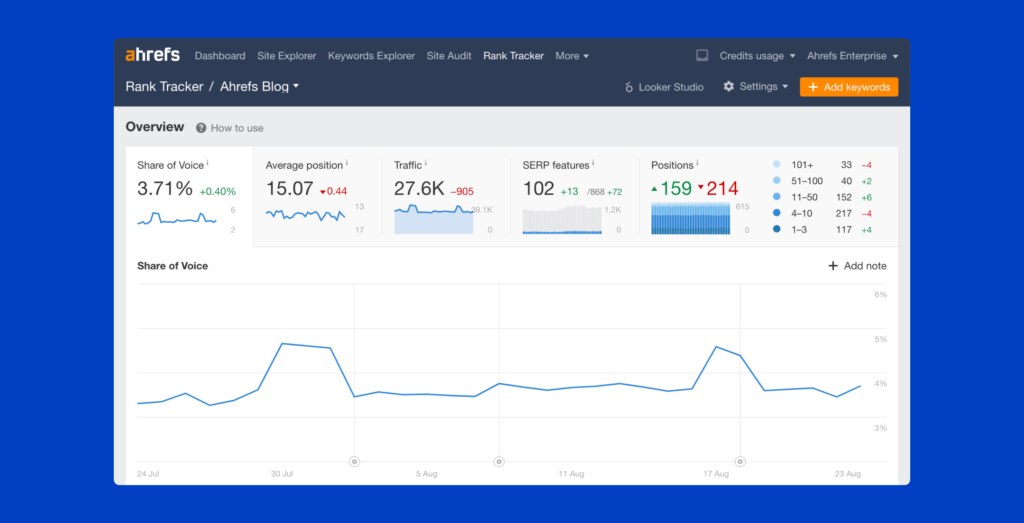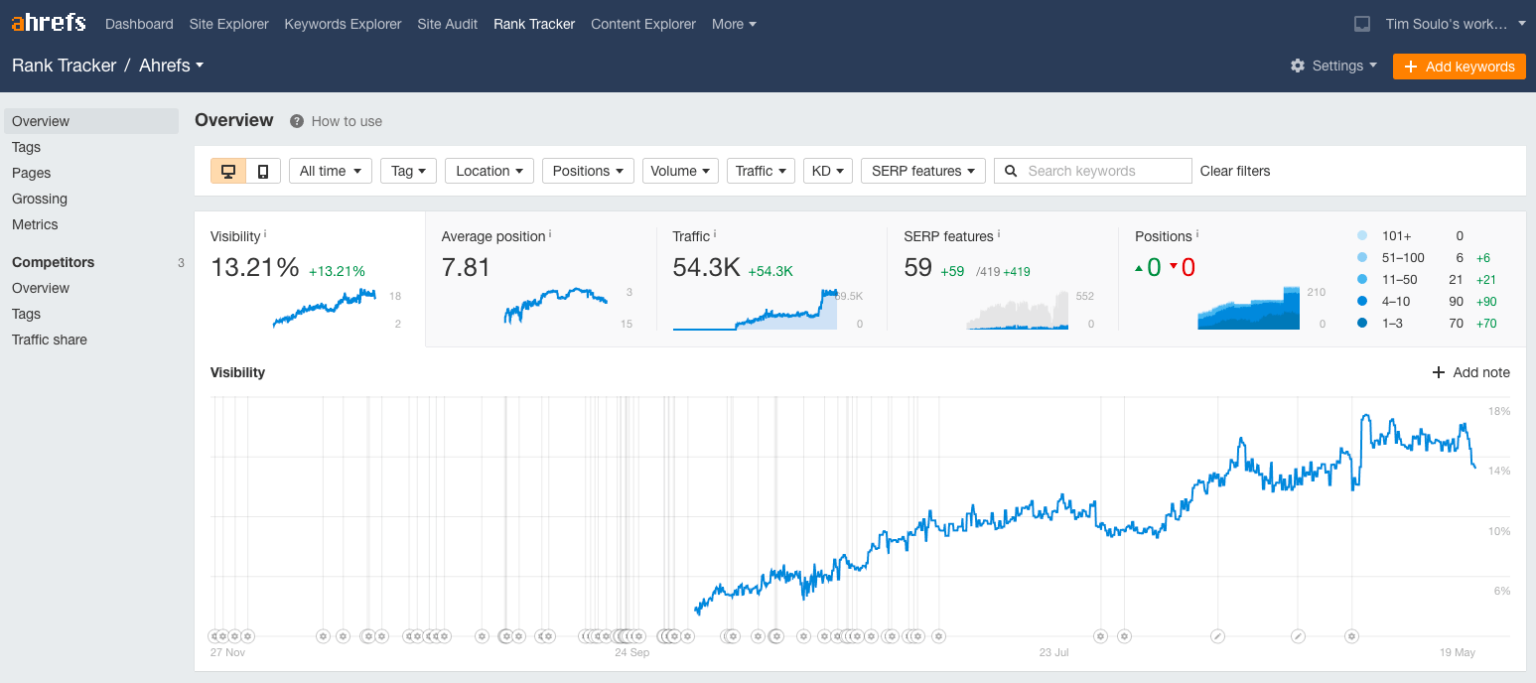introduction to How to Track Keyword Ranking
In the ever-evolving landscape of digital marketing, keeping track of your keyword rankings is essential to understanding how well your website is performing. Whether you’re an SEO expert, a digital marketer, or a small business owner, knowing how to track keyword rankings can provide valuable insights into your strategies and help you stay ahead of the competition. This guide dives into everything you need to know about keyword tracking—why it matters, tools you can use, and actionable steps to get started.

Why Tracking Keyword Rankings is Crucial
Keyword rankings give you a snapshot of how well your website performs in search engines like Google, Bing, or Yahoo. But why is it so important to monitor these rankings regularly? Let’s explore. How to Track Keyword Ranking
Measure Your SEO Efforts
Search engine optimization (SEO) is a long-term strategy, and tracking keyword rankings helps you measure the effectiveness of your efforts. Are your targeted keywords climbing the search engine results pages (SERPs), or are they stuck? By monitoring your rankings, you can see whether your on-page and of-page strategies are working or if adjustments are necessary. How to Track Keyword Ranking
For example, if you’ve recently updated blog content or built high-quality backlinks, an improvement in your keyword ranking can validate those actions. On the flip side, a drop in rankings might signal an issue that needs immediate attention. How to Track Keyword Ranking
Understand Market Trends
Keyword trends often mirror market trends. Monitoring rankings can help you stay updated on what’s trending in your industry. If a specific keyword sees an increase in competition or search volume, it’s a clear sign that other businesses are targeting it too. Staying on top of these changes allows you to adapt your strategies accordingly.
Moreover, understanding these trends can guide your content creation process. If certain keywords are gaining traction, you can produce more targeted content to capitalize on the growing demand. How to Track Keyword Ranking
Stay Ahead of Competitors
Keeping an eye on your rankings also helps you stay ahead of competitors. Knowing where you stand compared to your rivals can give you a competitive edge. Are they outranking you for a high-volume keyword? If so, it might be time to analyze their strategies and find ways to improve your own. How to Track Keyword Ranking
Competitive intelligence derived from keyword tracking can be a game-changer, especially in saturated markets. It provides an opportunity to spot gaps in your strategy and exploit areas where your competitors are lagging. How to Track Keyword Ranking
Steps to Track Keyword Rankings Effectively
Tracking keyword rankings may sound like a daunting task, but with the right approach, it can be quite straightforward. Here’s a step-by-step guide to help you get started. How to Track Keyword Ranking
Identify Your Target Keywords
Before you can track rankings, you need to know which keywords to target. These could be short-tail keywords (e.g., “SEO tools”) or long-tail keywords (e.g., “how to track keyword rankings effectively”).
How to Choose Keywords:
Relevance: Make sure the keywords are highly relevant to your business or niche. How to Track Keyword Ranking
Search Volume: Target keywords with substantial search volume to ensure they’re worth the effort.Competition: Look for a balance between high search volume and low competition.
Tools like Google Keyword Planner, SEMrush, or Ahrefs can help you identify the best keywords for your strategy. How to Track Keyword Ranking
UseUseword Tracking Tools
Manually checking your keyword rankings can be time-consuming and inaccurate. Thankfully, there are plenty of tools designed to make this task easier. How to Track Keyword Ranking
Popular Tools for Keyword Tracking:
Google Search Console: Free and highly effective for monitoring your rankings.
SEMrush: A powerful tool with comprehensive keyword tracking features.
Ahrefs: Offers detailed insights into keyword rankings and competitor analysis.
Rank Tracker by SEO PowerSuite: Customizable and user-friendly.
sERPWatcher: A beginner-friendly tool ideal for tracking keyword rankings over time.
Set Up Regular Tracking
Once you’ve chosen a tool, set up regular tracking schedules. Many tools allow you to track rankings daily, weekly, or monthly. Regular tracking helps you spot trends, identify issues, and stay updated on your progress.
When setting up your tracking schedule, consider the following:
Frequency: Daily tracking can be insightful but may not always be necessary. Weekly or biweekly tracking often strikes a good balance. Location: Specify the geographical location if you’re targeting a local audience.Device Type: Rankings can vary between mobile and desktop devices, so track both for a holistic view.How to Track Keyword Ranking
Interpreting Keyword Ranking Data
Tracking rankings is one thing; interpreting the data is another. Let’s explore how to make sense of the numbers. How to Track Keyword Ranking
Look for Patterns
When analyzing your rankings, look for patterns rather than focusing on individual fluctuations. A single-day drop might not be significant, but a consistent decline over weeks could indicate a problem.
Common Patterns to Watch For:
Seasonal Trends: Certain keywords perform better during specific seasons (e.g., “Christmas decorations” in December).Algorithm Updates: Sudden drops might be linked to search engine algorithm changes.Competitor Activity: An unexpected ranking loss might mean competitors have stepped up their game.
Focus on Click-Through Rates (CTR)
Rankings alone don’t tell the whole story. A keyword might rank high, but if the click-through rate is low, it’s not bringing value to your business. Use tools like Google Search Console to analyze CTR and identify keywords that need optimization.
Ways to Improve CTR:
Write compelling meta titles and descriptions.
Use structured data to enhance SERP visibility.
Ensure your content matches the search intent.
Segment by Priority
Not all keywords are equally important. Segment your keywords into high, medium, and low priority based on factors like search volume, competition, and business goals. Focus your efforts on high-priority keywords for maximum ROI.
Advanced Strategies for Keyword Tracking
Once you’ve mastered the basics, consider these advanced strategies to take your keyword tracking to the next level.
Track Competitor Keywords
Keeping tabs on your competitors’ keywords can offer valuable insights. Tools like Ahrefs and SEMrush allow you to analyze which keywords your competitors are ranking for and identify opportunities to outperform them.
Key Benefits of Competitor Tracking:
Discover high-performing keywords you may have overlooked.
Understand their content strategy and improve upon it.
Gain insights into their backlink profile.
Monitor Featured Snippets
Ranking for a featured snippet can significantly boost your traffic. Use keyword tracking tools to identify snippet opportunities and optimize your content accordingly.
How to Optimize for Snippets:
Use question-based headers.Provide concise, direct answers.Include bullet points, tables, and lists for structured content.
AnaAnalyzerch Intent
Ranking for a keyword is useless if your content doesn’t match the search intent. Regularly analyze the search intent behind your target keywords and adjust your content strategy as needed.
Types of Search Intent:
Informational: The user is looking for information (e.g., “What is SEO?).
Navigational: The user is looking for a specific website (e.g., “YouTube”).
Transactional: The user is ready to make a purchase (e.g., “buy running shoes online”).
Common Challenges in Keyword Tracking (And How to Overcome Them)
Even with the best tools and strategies, tracking keyword rankings comes with its own set of challenges. Here’s how to tackle them.
1. Fluctuating Rankings
Rankings can fluctuate due to algorithm updates, competition, or even user behavior. Instead of panicking over every drop, focus on long-term trends and use the data to improve your strategy.
2. Data Overload
With so much data available, it’s easy to feel overwhelmed. Prioritize the most critical metrics and use filters to focus on what matters most.
3. Tracking Too Many Keywords
It’s tempting to track every keyword under the sun, but this can dilute your focus. Stick to a manageable number of high-priority keywords for better results.
Conclusion
Tracking keyword rankings is an essential aspect of any successful SEO strategy. By monitoring your performance, analyzing data, and adapting your tactics, you can stay ahead of the competition and achieve your marketing goals. Whether you’re new to SEO or a seasoned pro, following the steps outlined in this guide will set you up for success.
Remember, the key to effective keyword tracking is consistency. Use the right tools, stay vigilant about trends, and always align your strategy with your business goals. Happy tracking!
